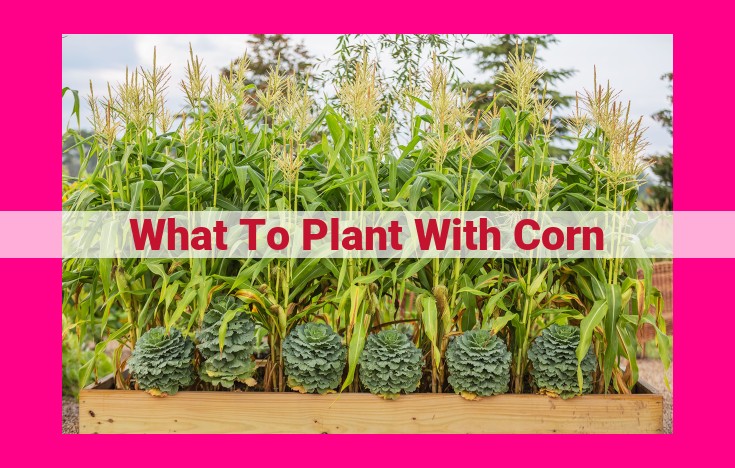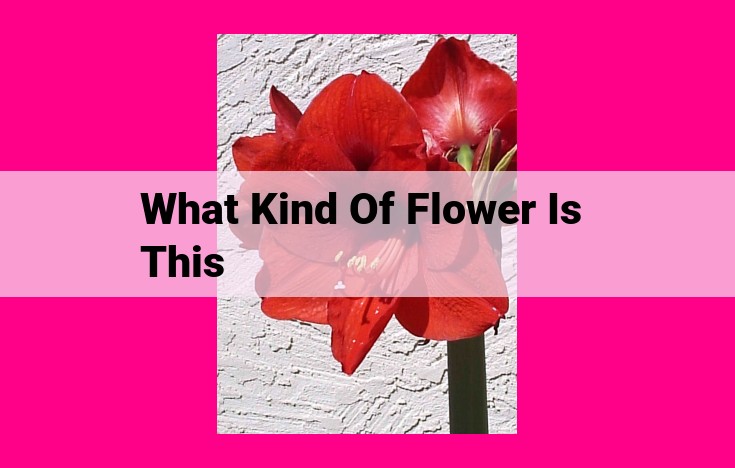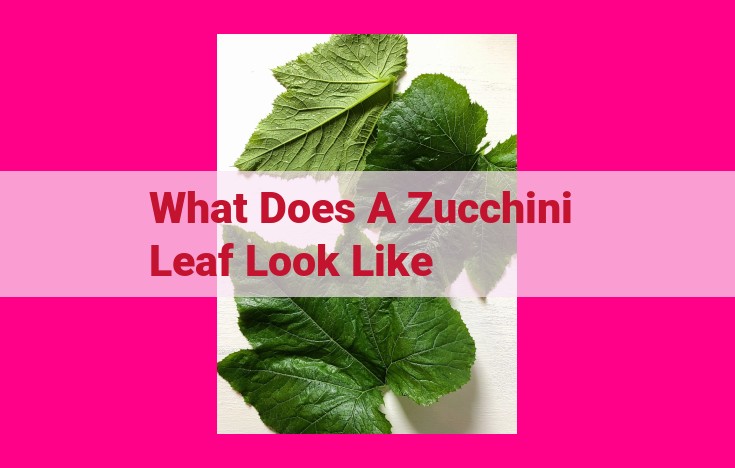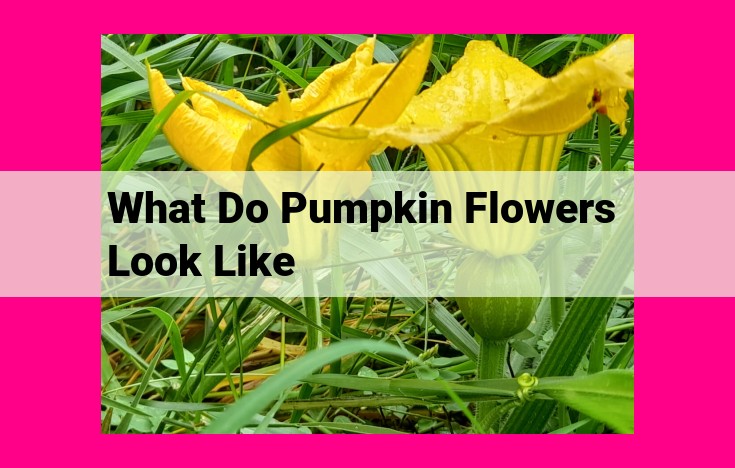The Ultimate Guide To Companion Planting Corn For Enhanced Garden Productivity

Plant beans, squash, and nitrogen-fixing legumes alongside corn to enhance productivity, maximize space, attract pollinators, provide nutrients, and suppress weeds. These companion plants contribute to a thriving garden ecosystem by enriching the soil with nitrogen, attracting beneficial insects, deterring pests, and promoting plant growth.
Enhancing Productivity with Nitrogen-Enriching Companions:
In the realm of gardening, harmonious partnerships abound. Enter the symbiotic dance between beans, squash, and nitrogen-fixing plants like legumes. These botanical companions join forces to create a veritable garden Eden, where productivity flourishes and the ecosystem thrives.
Nitrogen, the building block of plant life, often poses a challenge in gardening. However, nature has a solution: nitrogen fixation. Legumes, such as beans and peas, possess the remarkable ability to convert atmospheric nitrogen into a form that plants can readily absorb. This symbiotic relationship between legumes and rhizobia bacteria forms root nodules, where nitrogen fixation takes place.
As nitrogen-rich nutrients spread throughout the garden ecosystem, the benefits cascade. Beans and squash, in particular, form a classic companionship. Beans, with their nitrogen-fixing powers, enrich the soil, while squash plants, with their sprawling vines, provide shade and moisture retention. This mutualistic arrangement fosters a thriving environment where both plants flourish.
Vertical Gardening: Maximizing Space with Beans and Squash
In the realm of gardening, where space is often at a premium, vertical gardening emerges as a brilliant solution. By harnessing the vertical growth habits of plants like beans and squash, gardeners can transform limited areas into flourishing gardens.
Beans, with their twining vines, and squash, with their spreading leaves, have long been recognized for their ability to make the most of vertical space. By providing trellises or support structures, these plants can climb upwards, leaving valuable ground space for other crops.
Companion planting, the practice of strategically placing compatible plants together, offers additional benefits in vertical gardening. By planting dill or nasturtiums alongside beans and squash, gardeners can attract pollinators and deter pests. These companions create a symbiotic ecosystem where each plant contributes to the overall health and productivity of the garden.
For example, dill releases a fragrant oil that attracts bees, improving pollination and fruit set in beans and squash. Nasturtiums, on the other hand, repel aphids, common pests that can damage leaves and stems. By incorporating companion plants into the vertical garden, gardeners can minimize pest problems and boost yields.
Vertical gardening with beans and squash not only maximizes space but also improves air circulation and prevents soil-borne diseases. The elevated growth habit allows for better sunlight exposure and airflow, reducing the risk of fungal issues. Additionally, trellising or vertical supports can help keep plants off the ground, preventing rot and disease.
In conclusion, vertical gardening with beans and squash is an ingenious way to optimize space and enhance productivity in limited gardens. By utilizing the vertical growth potential of these plants, along with the benefits of companion planting, gardeners can create thriving, space-efficient gardens that yield bountiful harvests.
Enhancing Your Garden with Companion Plants
Companion planting is a natural and effective technique that involves strategically pairing plants to enhance their growth and well-being. Certain plants have special properties that can attract beneficial insects, repel pests, and improve soil health. Let’s explore one key aspect of companion planting: attracting pollinators and deterring pests.
The Allure of Pollinators
Pollinators, such as bees and butterflies, play a crucial role in our gardens. They transfer pollen between flowers, enabling plants to reproduce and produce fruit. By incorporating plants that attract pollinators, you can increase the yield and diversity of your garden.
- Dill: This aromatic herb releases a sweet scent that bees simply adore. Its delicate leaves also provide a nectar source that attracts other beneficial insects like ladybugs and lacewings.
- Marigolds: These vibrant flowers not only brighten your garden but also act as a powerful pest deterrent. Marigolds release a chemical compound called pyrethrum, which repels a wide range of insects, including aphids, thrips, and mosquitoes.
The Pest Deterrent Duo
While pollinators are essential, it’s equally important to keep pests at bay. Companion plants can help you do just that:
- Nasturtiums: These trailing plants are a favorite of aphids. By planting nasturtiums around your garden, you can lure these pests away from your more valuable crops, giving them time to thrive.
- Borage: The star-shaped blue flowers of borage attract hoverflies, which are natural predators of aphids. Additionally, borage releases a sweet nectar that benefits other beneficial insects.
Enhanced Garden Health, Naturally
By incorporating companion plants that attract pollinators and repel pests, you’re not only boosting your garden’s productivity but also improving its overall health. A thriving ecosystem with a variety of plants creates a natural balance that benefits all its inhabitants.
Companion planting is a sustainable and rewarding way to enhance your garden. By bringing together plants that work synergistically, you can attract pollinators, deter pests, and create a thriving, biodiverse ecosystem in your own backyard. Remember, nature knows best – let’s embrace its wisdom!
Nutrient Provision for Thriving Plants: The Power of Nitrogen-Fixers
Nitrogen is an essential nutrient for all plants, yet it is often scarce in the soil. That’s where nitrogen-fixing plants come in as the unsung heroes of the garden, quietly working behind the scenes to boost fertility and support the entire ecosystem.
Legumes: Nitrogen Factories in Your Backyard
Legumes, a family of plants that includes beans, peas, and lentils, possess a unique ability to convert atmospheric nitrogen into a usable form for other plants. This process, known as nitrogen fixation, occurs in nodules on their roots.
The Symbiotic Dance of Nitrogen Fixation
In this remarkable partnership, nitrogen-fixing bacteria reside within the nodules of legumes. These bacteria convert nitrogen gas into ammonia, which is then used by the legume to synthesize amino acids, the building blocks of proteins.
However, the generosity of legumes extends beyond their own needs. These plants release excess nitrogen into the soil, enriching it for the benefit of their companions.
Benefits for Companion Plants
Nitrogen-fixing plants have a profound impact on the productivity of other plants in the garden. By providing a steady supply of nitrogen, they support vigorous growth, abundant yields, and enhanced resistance to pests and diseases.
Planting for Nitrogen Abundance
To harness the power of nitrogen-fixers, include them in your garden plan. Beans, peas, and clover are excellent choices for companion planting with vegetables, herbs, and flowers. Consider planting them in rotation to ensure a continuous supply of nitrogen throughout the growing season.
Nitrogen-fixing plants are the unsung heroes of the garden ecosystem, providing essential nutrients for thriving plants. By understanding their unique role in nitrogen fixation, you can harness their power to boost fertility, enhance productivity, and create a thriving, sustainable garden.
Weed Suppression and Soil Health Improvement
- Discuss the benefits of companion plants like dill, marigolds, and nasturtiums in suppressing weeds. Explain how these plants release substances that inhibit weed growth and enhance soil health.
Weed Suppression: A Natural Way to a Healthy Garden
When weeds invade your garden, they not only steal precious nutrients but also hinder the growth of your desired plants. Enter companion planting, a harmonious partnership between plants that offers a natural solution to weed suppression and soil health improvement.
Dill: Nature’s Herbicide
Dill, a beloved culinary herb, has a hidden talent as a natural weed repellent. Its roots secrete substances that inhibit the growth of many common weeds, creating a protective zone around your beloved plants. This aromatic herb also attracts beneficial insects that further deter pests and diseases, making it a versatile addition to any garden.
Marigolds: The Bold and the Bountiful
Marigolds, with their vibrant blooms and pungent fragrance, are a gardener’s best friend when it comes to weed control. Their roots release thiophenes, potent compounds that disrupt seed germination and root development in weeds. Not only do marigolds suppress weeds, but they also act as a repellant against nematodes and other harmful pests.
Nasturtiums: A Edible Soil Improver
Nasturtiums, with their delicate leaves and vibrant flowers, are not only a visual delight but also a beneficial companion plant. Their dense foliage forms a natural ground cover that deprives weeds of sunlight and space. Additionally, nasturtiums possess allelopathic properties that inhibit the growth of certain weeds. As an added bonus, their flowers are edible, adding a spicy touch to salads and other dishes.
Enhanced Soil Health: A Foundation for Plant Success
The weed-suppressing and pest-repelling properties of companion plants go hand in hand with improved soil health. By reducing weed pressure, these plants allow beneficial microorganisms to thrive in the soil. These microorganisms play a crucial role in nutrient cycling, organic matter decomposition, and disease suppression, creating a balanced and healthy ecosystem for your plants to flourish.
Embrace Natural Weed Control and Soil Enrichment
By incorporating companion plants like dill, marigolds, and nasturtiums into your garden, you can naturally suppress weeds and improve soil health, fostering a thriving environment for your desired plants. Let these herbaceous allies become your garden’s protectors, ensuring a bountiful harvest and a vibrant, pest-free garden.





